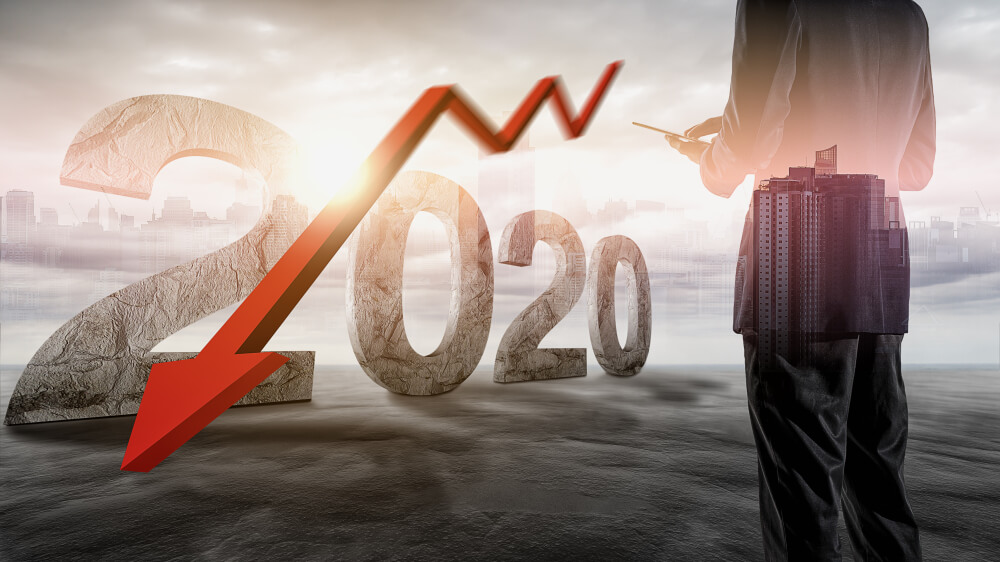Another 2.1 million Americans filed for unemployment recently and the likelihood of 20% unemployment is real, as is a recession.
Yes, stimulus checks from the federal government have helped make up at least some of the lost income felt by the sting of unemployment for nearly 40 million Americans.
And, yes, Congress is debating the possibility of sending even more cash out.
That has left consumer confidence still better than the worst of the 2008 financial crisis.
The stock market is behaving as if nothing is wrong. In the first quarter, earnings per share fell just 14%. And, by “just,” I mean it was expected to be a whole lot worse. But 14% is still a big drop.
Banyan Hill Publishing’s John Ross said consumers are breathing a bit easier, but it won’t last.
‘The Recession Is Still Young’
Ross, the Editor of Apex Profit Alert, said the Conference Board Consumer Confidence Index — an indicator of how consumers feel about the economy — is nowhere near its lows from the 2008-2009 financial crisis.
But it’s likely to change.
“The recession is still young. We still haven’t felt its toll,” Ross said. “Sentiment will deteriorate. The optimism about reopening the economy will wear off. The reality of the economic slowdown will set in.”
He said confidence drifts back and forth, prices move up and down and investors are looking too far ahead.
“The stocks that have rallied will fall again,” he said.
This Sector Tells the Story About the Recovery Myth
One sector that has led the way to a higher stock market is consumer discretionary stocks. They are currently up nearly 40% from their low — measured by the S&P Select Sector Consumer Discretionary SPDR Fund (NYSE: XLY).
The thought is the fund tracks stocks of companies where people spend money on what they want, not on what they need. Ross said this was similar to cruise lines and hotels.
But you have to look a little deeper at the fund to find that’s not everything.
XLY’s biggest holding is Amazon.com Inc. (Nasdaq: AMZN) — which accounts for 25% of the fund. Because XLY is a market capitalization fund, bigger stocks are a larger part of the holding.
“You might see how this could distort the full picture of this sector’s recent performance,” Ross said.
It also holds Home Depot Inc. (NYSE: HD), Lowe’s Co. (NYSE: LOW) and McDonald’s Corp. (NYSE: MCD).
Most states considered Lowe’s and Home Depot’s essential businesses as millions were stuck at home with nothing else to do but catch up on home improvement projects.
“Discretionary stocks are supposed to show that consumers are getting back into the luxuries and that they’re not just thinking about necessities,” Ross said. “But looking at the holdings of XLY tells us what counts as ‘discretionary’ is a little different than you might think.”
Because of the nationwide coronavirus lockdown, Ross said buying items on Amazon “is about as discretionary as using toilet paper.”
Be Careful of the Lockdown Darlings
When the stock market fell off a cliff in late February and into March, investors were left scrambling for places to put their money.
They found lockdown darlings like Lowe’s, Home Depot, Amazon and McDonalds.
But Ross said those stocks aren’t indicative of a swift recovering market.
“This recession is going to last longer. And reopening the economy is not the same as restoring the economy to a pre-pandemic state,” Ross said. “Even these darlings won’t come out unscathed from this recession.”
While signs may point to the stock market entering into a recovery phase, the jump is premature. There is more downside to come.
“We’ll be wrestling with unemployment and its consequences for several quarters,” Ross said. “The shine will come off stocks such as Amazon, Home Depot and the rest that have benefited from other companies’ losses in lockdown.”
